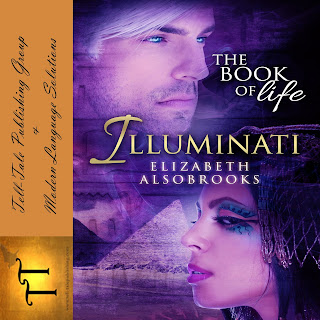Everyone always says to write what you know, but that doesn’t have to mean that all you can write about are places you’ve been, activities at which you’re an expert and events you’ve experienced personally. It most often means, literally, to research something you want to write about so well that you’ve added it to your plethora of things you know.
Some of you might ask if it really matters whether you research if you’re just making it up, as in fiction writing and building your own world. The simple answer is: hell yes! Here’s an example: many people often say what a great Sci-Fi writer someone is and that their “make believe” stuff actually comes true. Hm, I wonder why that is? It’s because they so thoroughly researched a scientific theory that they understand it on a left-brain basis and are able to then fictionalize it for their own purposes with a right-brain concept. As modern science advances, scientists can refine theories and the hypothesis is recreated in a real-world application, literally rather than creatively.
It’s not just science that needs to be researched. If you have a character with certain hobbies or one who plays sports or rock climbs or hikes, or, well, anything that makes a character seem three-dimensional, even if it’s a taste for cinnamon added to their coffee, it’s something you need to research. Yes, research can be as simple as what types of coffee taste best with cinnamon added. They can also be as complicated as what type of machine might theoretically be used to detect the presence of jinn (yes, I have researched that!). It’s what makes your writing stand out among the millions of books that come out every year. It just makes you a better writer and it’s something readers may not always notice on a specific level, but one they appreciate by how much more realistic and believable your make-believe world really is.
That said, you need to be careful. Realistic fiction is a strong goal, so even though it’s fiction, you need to apply your facts in realistic ways. Some people who read fiction are experts in various things. Of course, you know that, but did you also know I’ve seen reviewers write scathing condemnations of writers who get things wrong, or who stray too far from the “facts” while using facts to back up their make-believe that they offend the experts? So, where and how does one research to gain a better understanding of things, so that even if you change some details it’s still believable in your make-believe world?
I don’t need to be a retired educator to know most people begin and unfortunately end with Wikipedia. Why is this bad? Because literally anyone can write or change anything they want on Wikipedia, about any subject at all. Be honest. How many experts do you think spend their time writing entries on Wikipedia? Next to none. It would tarnish their reputations in many respects. Do you think I let my college students use Wikipedia on their Works Cited page? Hardly. Do they credit nine-year-old Mikey who cut and pasted it, plagiarizing NASA?
So where do you go for your information? NASA’s a great start if you’re looking for science facts. I’ve used it and I don’t write science fiction. I have science fiction elements in my mashup urban fantasy reinvented (yes, that’s what I call it because I took genre facts with my left brain and got creative with them with my right brain!).
If you are lucky enough to have access to university archives online, use those by all means! If not, always check the bottom of a web page, or the top, for copyright data. That will tell you who’s responsible for the information on that website and give you a good clue about whether they are ‘true’ experts, as in recognized by other professionals in their field, on the information you want. Use more than one reference, because you might have difficulty understanding the theories or concepts at first and reading it several different ways from various writing styles helps comprehension. Sites put out by authorities for youngsters is a great place to gain a better understanding of the main concepts. This goes for science, sports, hobbies, and anything else that might be complicated. Just remember that if you’re looking for rules, as in for sports, if you’re talking about adults, you need to look up professional or university rules specifically, because they differ, as do the rules for kids’ sports.
Does all this research seem complicated? It can be and is often the most labor-intensive part of writing but thank goodness for the internet. Just think what we writers had to do before we had it? And, for many of us, it’s really interesting to find out details about so many things.
Better researching . . . makes better books.
Check out some non-science fiction vs nonsense in one of my books, such as The Book of Life. I'm about 3/4 done with the sequel, The Tree of Life, where you can discover how to detect jinn--in "my" world! You can get The Book of Life in digital, paperback, or also in audio! Click and listen to a clip!



3 comments:
Great tips on research and validating info.
Great post, Dr. E! Hanging your make believe on reality always gives strength the the fabric of your tale, even if your plot and characters are contrary to scientific fact . . . or more importantly, because of it. Suspending belief requires making that suspension believable!
Thanks, Maureen!
Thanks, Nancy. As a fellow had to go to the actual library and dig through index files to find research sources, you certainly get the importance of getting it right. I feel I've succeeded if I make someone wonder what if . . . that might be possible, or true, or...
Post a Comment